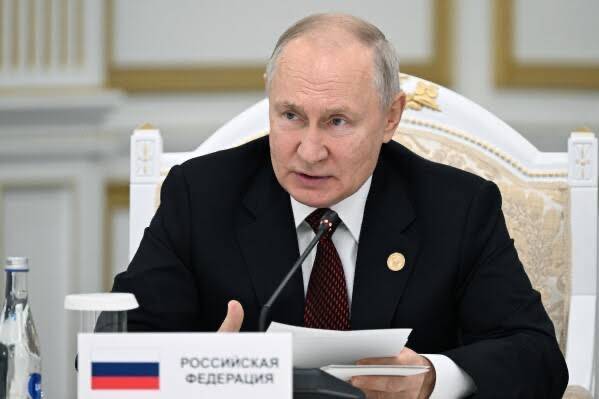Russian President Vladimir Putin makes surprise move on International Nuclear Treaty
Shares

In Moscow, on Thursday, Russian President Vladimir Putin signed a law that annuls Russia's ratification of the Comprehensive Nuclear Test Ban Treaty.
This treaty, established in 1996, prohibited all nuclear explosions, including live tests of nuclear weapons. However, it never came into effect because several key countries, including the United States and China, did not ratify it.
The Western nations have accused Russia of using provocative nuclear rhetoric since its offensive in Ukraine that began in February. Just last week, Putin oversaw ballistic missile exercises, which Defense Minister Sergei Shoigu described as practice for a "massive" retaliatory nuclear strike against an undisclosed adversary.
Additionally, Putin mentioned last month that he was uncertain whether Russia would conduct live nuclear tests. The bill to withdraw from the treaty swiftly passed through Russia's parliament last month.
During parliamentary discussions, State Duma speaker Vyacheslav Volodin explained that this move was a response to the United States' "cynicism" and "rudeness" regarding nuclear weapons.
Even though the treaty never became effective, it was ratified by 178 countries, including nuclear powers like France and Britain, and carried symbolic importance.
Supporters argue that it established an international standard against live nuclear weapon tests, while critics contend that the treaty's potential remains unfulfilled without the ratification of major nuclear powers.
Russia's parliament had ratified the agreement in June 2000, just six months after Putin assumed the presidency.
